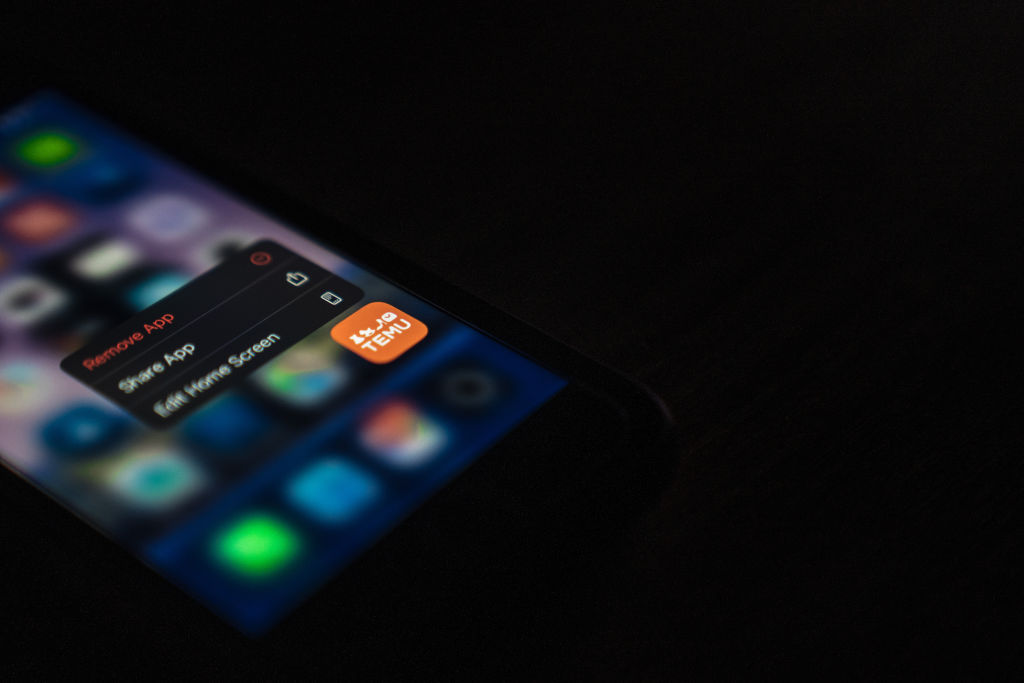Why shopping app Temu could be cause for consumer concern
Are brazenly low prices enough to disregard dubious business practices?


A free daily email with the biggest news stories of the day – and the best features from TheWeek.com
You are now subscribed
Your newsletter sign-up was successful
If you hadn't yet heard of Temu, chances are you would have soon. Consider it a wannabe Amazon, another morally questionable online retailer with prices so low you can understand why an inflation-plagued consumer would want to take advantage. And it's only getting more popular — unique visitors in the U.S. catapulted from 5.1 million at the time of its launch in September 2022 to 70.1 million by February 2023, the Los Angeles Times reported per Insider Intelligence. At the time of this writing, it was the #1 free app on the Apple App Store, besting YouTube TV, TikTok and Instagram, as well as WhatsApp, Facebook and (believe it or not) Amazon.
Though PDD Holdings, the Chinese company that owns Temu, is based in Shanghai, Temu itself is based in Boston. Still, that fact hasn't stopped lawmakers and government officials from throwing flags regarding the retailer's origins and business practices. In April, the U.S.-China Economic and Security Review Commission released a report mentioning both Temu and Shein, an extremely popular fast-fashion website, as "two Chinese companies of concern over issues related to exploitation of trade loopholes, product safety, forced labor, violations of intellectual property rights and more," the Times summarized. (Both websites, which Insider noted share many similarities, have also filed lawsuits against one another.) But when you can buy a knock-off JBL speaker for $11.49 or an Apple Watch dupe for $16.88, can you blame the average cash-strapped consumer for overlooking supposed shadiness in exchange for a good deal?
It's sketchy, but … ?
The quality of Temu's products might not be amazing, but Leezan Da, a financial adviser, told the Times she doesn't mind. "What you get is what you pay [for]," Da said. "Don't pay much, that's what you get. I don't complain about it." She said she would recommend the app to friends. Similarly, Brianna Lukey said she was initially hesitant to try Temu, but feels much better about it now. "I know there's a lot of things that go around that may not be legit," she told Time. "But this was." On the App Store, Temu has a 4.6 out of 5-star rating from 508K reviews.
The Week
Escape your echo chamber. Get the facts behind the news, plus analysis from multiple perspectives.

Sign up for The Week's Free Newsletters
From our morning news briefing to a weekly Good News Newsletter, get the best of The Week delivered directly to your inbox.
From our morning news briefing to a weekly Good News Newsletter, get the best of The Week delivered directly to your inbox.
"The question 'is Temu legit' is presently ubiquitous on the internet thanks to Temu's aggressive ad buys, its apparent comfort at operating at a loss, and its flashy low prices," Snopes reported in June. "On the one hand, you will likely be able to buy and eventually receive cheap products that are similar to the products advertised on its site. In that sense, the website is 'legit.'"
Unreliable and unsustainable
If you're wondering how Temu can afford to court consumers with such wildly low prices and deals, it's probably because it can't. "There's absolutely no way Temu runs a profitable retail business," Juozas Kaziukenas, founder of e-commerce research company Marketplace Pulse, told the Times. "They are effectively buying market share and hoping in the years to come that market share will stick."
Experts have also alleged that Pinduoduo, another e-commerce app from Temu parent company PDD Holdings, contains malware and spies on its users, CNN reported in April. "We haven't seen a mainstream app like this trying to escalate their privileges to gain access to things that they're not supposed to gain access to," Mikko Hyppönen, chief research officer at a Finnish cybersecurity firm, told the outlet. "This is highly unusual, and it is pretty damning for Pinduoduo." Temu was not "implicated" in CNN's investigation, it noted.
Moreover, Temu is not accredited by the Better Business Bureau (which could just mean it has not asked for accreditation, as it costs a fee), and boasts a current customer rating of 2.51 out of 5 stars; 931 complaints were closed in the last year. "They're making delivery promises, and people aren't getting their stuff when they're supposed to be," BBB's Melanie McGovern told Time in 2022. "While there is presently no evidence that Temu itself is malware," Snopes added in its June analysis, "the corporate history and business ethics of PDD Holdings makes these concerns legitimate, as well."
A free daily email with the biggest news stories of the day – and the best features from TheWeek.com
Perhaps most damning, however, is a new report from market research company and short seller Grizzly Research that describes Temu as "the most dangerous malware/spyware package currently in widespread circulation." According to company CEO Siegfried Eggert, the Temu app contains so-called "self-compiling software" that circumvents your phone's malware detection abilities and allows PDD to illegally steal your data, he told CNBC's "Last Call." Eggert said he is in active conversations with a "range of regulatory agencies" in the U.S. regarding his company's report.
Brigid Kennedy worked at The Week from 2021 to 2023 as a staff writer, junior editor and then story editor, with an interest in U.S. politics, the economy and the music industry.
-
 The Olympic timekeepers keeping the Games on track
The Olympic timekeepers keeping the Games on trackUnder the Radar Swiss watchmaking giant Omega has been at the finish line of every Olympic Games for nearly 100 years
-
 Will increasing tensions with Iran boil over into war?
Will increasing tensions with Iran boil over into war?Today’s Big Question President Donald Trump has recently been threatening the country
-
 Corruption: The spy sheikh and the president
Corruption: The spy sheikh and the presidentFeature Trump is at the center of another scandal
-
 TikTok secures deal to remain in US
TikTok secures deal to remain in USSpeed Read ByteDance will form a US version of the popular video-sharing platform
-
 How will China’s $1 trillion trade surplus change the world economy?
How will China’s $1 trillion trade surplus change the world economy?Today’s Big Question Europe may impose its own tariffs
-
 Shein in Paris: has the fashion capital surrendered its soul?
Shein in Paris: has the fashion capital surrendered its soul?Talking Point Despite France’s ‘virtuous rhetoric’, the nation is ‘renting out its soul to Chinese algorithms’
-
 Will latest Russian sanctions finally break Putin’s resolve?
Will latest Russian sanctions finally break Putin’s resolve?Today's Big Question New restrictions have been described as a ‘punch to the gut of Moscow’s war economy’
-
 China’s rare earth controls
China’s rare earth controlsThe Explainer Beijing has shocked Washington with export restrictions on minerals used in most electronics
-
 The struggles of Aston Martin: burning cash not rubber
The struggles of Aston Martin: burning cash not rubberIn the Spotlight The car manufacturer, famous for its association with the James Bond franchise, is ‘running out of road’
-
 US to take 15% cut of AI chip sales to China
US to take 15% cut of AI chip sales to ChinaSpeed Read Nvidia and AMD will pay the Trump administration 15% of their revenue from selling artificial intelligence chips to China
-
 Is Trump's tariffs plan working?
Is Trump's tariffs plan working?Today's Big Question Trump has touted 'victories', but inflation is the 'elephant in the room'
